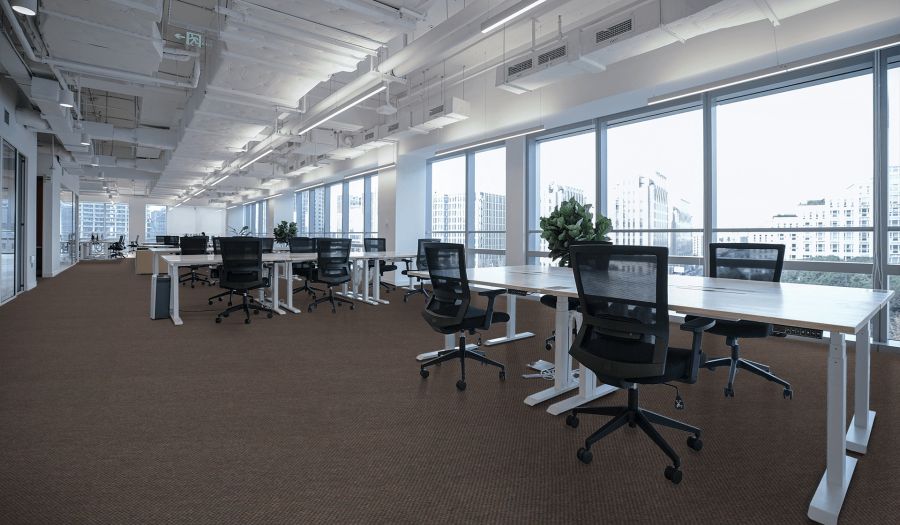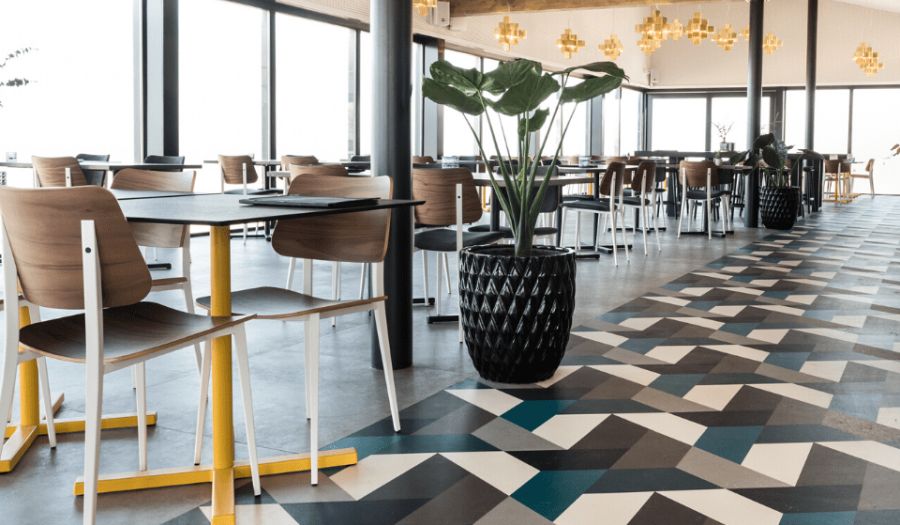
Flooring for Commercial Use: 3 Things to Consider
Those looking into new flooring will quickly learn that there are two, broad categories for types of floors. The first is residential, which is used in homes and living spaces. Then there is flooring for commercial use. Flooring for commercial use is difficult to differentiate from residential floors at face value, but the features are what sets them apart.
Various kinds of floors are designed according to a specific space’s functions. Residential carpeting, for example, will be plush, soft and luxurious, and will not necessarily be suited for use under heavy traffic for decades. When it comes to commercial use, of course, one needs to consider the practical benefits of selecting certain types of floors. There are three, major points to consider before investing in flooring for commercial use.
1. Durability and Resistance to Damage
Facilitating heavy traffic is the main feature of commercial flooring. Think about places such as shops, restaurants, hospitals and schools – plenty of feet plod along on these floors daily. In retail spaces, it is not just customers walking about – staff and suppliers are regulars too on an average business day. These floors also need to be resistant to heavy objects and impact. It is a common occurrence for various furniture, business equipment, and stock to be placed on these floors. In institutions of learning such as schools, for example, heavy tables and chairs are often dragged across the floor, and an installation is required that will not show damage too quickly. If damage does occur, it is best to find an option that allows for the replacement of one or two damaged boards as opposed to redoing the entire floor.
2. Maintaining Floors and Keeping them Clean
A lot of traffic means that there will inevitably be debris and grime to clean. Frequent cleaning in commercial settings is often required – and usually with industrial-strength hygiene products. Spaces such as hospitals, medical facilities, care centres and even day spas require cleaning several times a day. Industries such as hospitality or those that provide food services can also expect spills and messes that will need to be cleaned. This means that flooring for commercial use must be relatively resistant to moisture, and should not swell, warp or bubble when it comes into contact with cleaning products. Wooden floors, for example, simply will not handle daily mopping and scrubbing, so be sure to consult with your professional supplier before purchasing a product.
3. The Right Aesthetic Option
Though most people do not pay much attention to floors, the wrong floors are usually an eyesore. Various product designs contribute to the feel of a space. Lighter, softer colours are comforting and transform a clinical waiting room into a tranquil area. Rich, deep wooden prints add depth and a warm, rustic feel to an office that seems corporate and cold. The flooring for commercial use that you select will not only create ambience but could even impact a company or brand’s image. One can select an option that meets every practical requirement but still fails to impress clients, customers or patrons when it comes to style. Fortunately, there are plenty of design options available in terms of flooring for commercial use.

Other Special Considerations to Keep in Mind
Apart from the main, above-mentioned features that will determine whether your installation will work well in a specific space, there are other considerations one must not neglect. These include:
- Anti-slip solutions that prevent falls and injury. This feature is useful across the board but especially important in healthcare settings or in places where there is more moisture, such as day spas or even gyms.
- Noise reduction solutions that minimise impact sounds and enhance acoustics. The clattering sound of equipment being moved, or footsteps that come and go, can be distracting and even overwhelming in some spaces. It is always best to find a product that limits an echo effect or even muffles sound.
- Floors that do not trap dust and dirt. Hard, flat and seamless flooring solutions are exceptionally easy to clean and, therefore, less likely to spread allergens and debris. This will prevent allergies and even other respiratory issues for those who frequent the space. Rooms and hallways in places such as hospitals and medical centres need to meet stringent hygiene standards to curb the spread of disease and illness, and choosing the right floors is an essential part of this.
How We at Top Carpets and Floors Can Help You
As specialists in both residential and commercial flooring, our experience has taught us precisely which options are best suited to various industries. By partnering with us, you are privy to a range of stunning designs that are sure to impress. You will also avoid the risk of an unprofessional installation that looks mediocre and performs poorly. We have serviced various sectors such as retail, hospitality, dining and restaurants, the fitness industry, corporate spaces, healthcare and even education. From laboratories to boutiques – we can help you find flooring for commercial use that speaks to you.
For more information on our available options and services, be sure to get in touch with us today.

